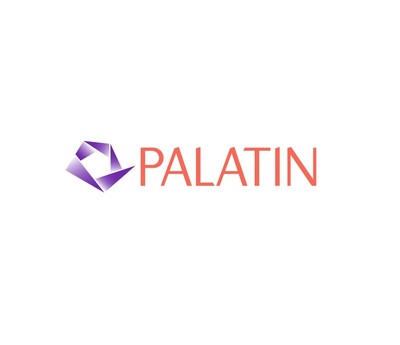CRANBURY, N.J., March 20, 2017 /PRNewswire/ -- Palatin Technologies, Inc. (NYSE MKT: PTN), a biopharmaceutical company developing targeted, receptor-specific peptide therapeutics for the treatment of diseases with significant unmet medical need and commercial potential, announced today that the United States Patent and Trademark Office (USPTO) has issued a Notice of Allowance for U.S. Patent Application Serial Number 14/704,223. The allowed claims are for methods of treating female sexual dysfunction and hypoactive sexual desire disorder (HSDD) with bremelanotide, an investigational product designed for on-demand treatment of HSDD in premenopausal women. Once issued, the patent will have a term to November 2033.

Stephen T. Wills, Chief Operating Officer and Chief Financial Officer of Palatin, commented, "We are pleased to have received a notice of allowance from the USPTO, which signifies that a patent can be granted from an application. We believe that this patent, with a term out to 2033, further strengthens the intellectual property portfolio for the bremelanotide development program."
Palatin previously announced positive Phase 3 results with bremelanotide for treating HSDD in premenopausal women. Palatin has entered into an agreement with AMAG Pharmaceuticals, Inc. (Nasdaq: AMAG) granting AMAG exclusive North American rights to develop and commercialize bremelanotide.
About Hypoactive Sexual Desire Disorder (HSDD)
HSDD, the most common type of female sexual dysfunction, affects approximately 15 million women in the U.S. and is characterized by low sexual desire that causes marked distress or relationship anxiety. Approximately 5.8 million pre-menopausal women have a primary diagnosis of HSDD. Patient awareness and understanding of the condition remain extremely low, and few women currently seek treatment. Recent market research indicates that 95 percent of pre-menopausal women suffering from HSDD are unaware that it is a treatable medical condition. Furthermore, the majority of these women indicated a willingness to try a product like bremelanotide, if recommended by their doctor.
About Bremelanotide
Bremelanotide, an investigational product, is thought to possess a novel mechanism of action, activating endogenous melanocortin pathways involved in sexual desire and response.
The two Phase 3 studies for HSDD in pre-menopausal women consisted of double-blind placebo-controlled, randomized parallel group studies comparing a single use, subcutaneous dose of 1.75 mg of bremelanotide versus placebo, in each case, delivered via an auto-injector. Each trial consisted of more than 600 patients randomized in a 1:1 ratio to either the treatment arm or placebo with a 24 week evaluation period. In both clinical trials, bremelanotide met the pre-specified co-primary efficacy endpoints of median improvement in desire and decrease in distress associated with low sexual desire as measured using validated patient-reported outcome instruments.
Women in the trials had the option, after completion of the trial, to continue in an ongoing open-label safety extension study for an additional 52 weeks. Nearly 80% of patients who completed the randomized portion of the study elected to remain in the open-label portion of the study, and all of these patients will continue to receive bremelanotide.
In both Phase 2 and Phase 3 clinical trials, the most frequent adverse events were nausea, flushing, and headache, which were generally mild-to-moderate in severity.
Bremelanotide has no known alcohol interactions.
About Palatin Technologies
Palatin Technologies, Inc. is a biopharmaceutical company developing targeted, receptor-specific peptide therapeutics for the treatment of diseases with significant unmet medical need and commercial potential. Palatin's strategy is to develop products and then form marketing collaborations with industry leaders in order to maximize their commercial potential. For additional information regarding Palatin, please visit Palatin's website at www.Palatin.com.
Forward-looking Statements
Statements in this press release that are not historical facts, including statements about future expectations of Palatin Technologies, Inc. such as statements about clinical trial results with bremelanotide, potential actions by regulatory agencies relating to bremelanotide, potential labels and indications for bremelanotide, whether the subject patent will issue or adequately protect against competition, the future status of pending and planned patent applications, and market potential for bremelanotide are "forward-looking statements" within the meaning of Section 27A of the Securities Act of 1933, Section 21E of the Securities Exchange Act of 1934 and as that term is defined in the Private Securities Litigation Reform Act of 1995. Palatin intends that such forward-looking statements be subject to the safe harbors created thereby. Such forward-looking statements involve known and unknown risks, uncertainties and other factors that could cause Palatin's actual results to be materially different from its historical results or from any results expressed or implied by such forward-looking statements. Palatin's actual results may differ materially from those discussed in the forward-looking statements for reasons including, but not limited to, results of nonclinical, preclinical and toxicology studies, result of clinical trials, regulatory actions by the FDA and the need for regulatory approvals, regulatory actions by the USPTO, Palatin's ability to fund development of its technology and establish and successfully complete clinical trials, the length of time and cost required to complete clinical trials and submit applications for regulatory approvals, products developed by competing pharmaceutical, biopharmaceutical and biotechnology companies, commercial acceptance of Palatin's products, and other factors discussed in Palatin's periodic filings with the Securities and Exchange Commission. Palatin is not responsible for updating for events that occur after the date of this press release.
References Regarding HSDD
U.S Census Bureau, 2014
Shifren et all, Sexual Problems and Distress in United States Women; Obstetrics & Gynecology, Vol. 112, No. 5, November 2008
U.S. Census Bureau, 2015 American Community Survey 1-Year Estimates
Mayo Clinic Proceedings: "Hypoactive Sexual Desire Disorder: International Society for the Study of Women's Sexual Health (ISSWSH) Expert Consensus Panel Review," Volume 92, Issue 1, January 2017
Burke Institute: Patient and Economic Flow Study, April 2016
Burke Institute: Patient Segmentation Insights, August 2016
To view the original version on PR Newswire, visit:http://www.prnewswire.com/news-releases/palatin-technologies-receives-notice-of-allowance-on-bremelanotide-methods-of-use-patent-for-treatment-of-hypoactive-sexual-desire-disorder-in-premenopausal-women-300425762.html
SOURCE Palatin Technologies, Inc.





